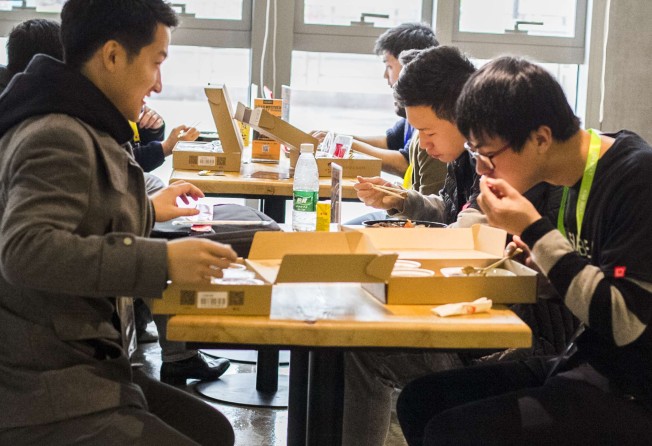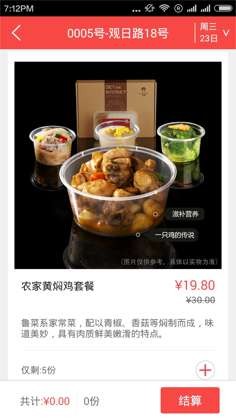Xiamen startup aims to change China’s US$7 billion food delivery market
Hygiene is a core selling point for ready to eat meal provider, Diet Internet

Chinese start-up Diet Internet aims to make mainland China’s US$7 billion food delivery market redundant in five years with its takeout machines, which let users order a hot meal via a mobile app and retrieve it in seconds by scanning a QR code at a machine nearby.
“The problem with food delivery in China is that hygiene is often not a priority for some restaurants. It’s not only the cooking process that is not hygienic, even the ingredients, and the delivery process are all not clean enough,” said Wang Lin, a co-founder of Diet Internet, at the Asia Beat 2016 conference last week.
Last week, China’s largest food delivery service Eleme, valued at US$3 billion, was being investigated by Shanghai authorities for violations against food safety laws after it was singled out by state-owned broadcaster CCTV for working with restaurants that operate without proper licenses or kitchens.
In contrast, Diet Internet, which is based in Xiamen, Fujian province, runs its own central kitchen. The kitchen mass-produces six different sets of meals for the day. Each meal comes with a side of vegetables, an appetiser, a soup and a main.
The company then stocks the 20 machines it has in Xiamen with the set meals before 11am each morning, and the food is kept warm at 65 degrees Celsius. Consumers can place an order on Diet Internet’s mobile app to purchase a meal at a specific machine, before collecting the food between 11am and 1pm each day.

“When you order takeout, delivery time is often uncertain. Sometimes the food arrives earlier than you expect it to and other times it arrives too late, and you receive a cold meal,” said Wang.
“With Diet Internet, consumers can retrieve a hot meal whenever they feel like having lunch, it’s very convenient.”
After 1pm, Diet Internet collects any remaining meals in the machine and disposes of them to ensure that there are no food safety issues from spoilage, according to Wang.
“With the central kitchen concept, our costs go down, because we purchase ingredients in bulk and prepare the meals on a larger scale with a standardised production process,” said Wang.
The company’s central kitchen can currently churn out a maximum of 30,000 meals daily, although its currently makes about 1,200 meals a day.
“A typical delivered meal in China usually costs the restaurant between five to eight yuan, delivery cost is often the most expensive component,” he said.
“But Diet Internet is able to drive the cost of delivery down by delivering many meals to a location at one time. This way, we can make more profit.”

“In five years, we hope to completely eliminate the food delivery industry,” said Wang.
Although Diet Internet only started operating its food machines in September, demand is strong and all of its meals sell out daily, according to the company. Soon, Diet Internet will broadcast a live feed of its central kitchen on a screen installed on each machine, to give consumers a peace of mind that their food is prepared in a clean and hygienic environment.
The company is on its way to turning a profit, once it operates 50 machines in the city, said Wang.
Diet Internet also plans to serve more cities in China, including first-tier cities such as Beijing, Shanghai, Guangzhou and Shenzhen. The company wants to install its food machines on the ground floor of office buildings in central business areas to target the white-collar crowd, and may eventually expand its scope to serve schools and even hospitals.
In the long run, Wang said that the start-up hopes to offer food for every meal of the day, including breakfast, lunch, afternoon tea and dinner.